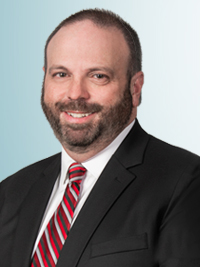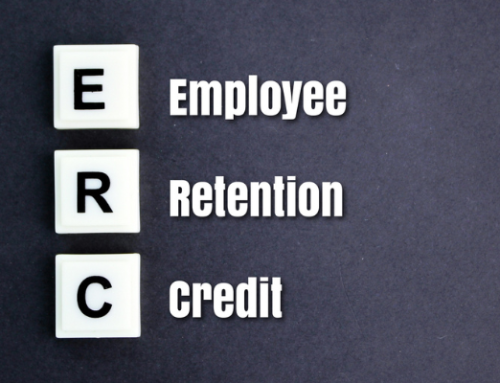Key points covered in this article:
-
Franchising is growing steadily despite economic uncertainty, with U.S. franchise establishments up 2.2% in 2024 and strong growth projected for 2025.
-
Key advantages include brand recognition, built-in support systems, and cost efficiencies that appeal to new business owners.
-
High-growth sectors like fast-casual dining and auto repair are thriving, especially in business-friendly regions like the Southeast and Southwest.
Franchising is showing steady momentum in an otherwise unpredictable economy. Interest rates remain high. Inflation hasn’t eased as much as expected. Trade policy changes by the week. These pressures are shaping how people spend and making some prospective business owners hit the pause button.
Still, franchise activity is heading in the opposite direction. In 2024, the number of franchise establishments in the U.S. increased by 2.2%, exceeding the projected 1.9%. Looking ahead, 2025 is expected to bring even faster growth. Franchise GDP is projected to rise by 5%, compared to about 2% for the broader economy. For many, franchising is offering a solid path to business ownership, even with uncertainty in the markets.
The Benefits of Franchising
One reason franchising keeps attracting interest is that it brings a level of structure many new businesses lack. Owners aren’t starting from scratch. They’re stepping into a model that’s already been tested. There’s usually a clear set of systems, training, and tools to help get up and running faster.
Brand recognition is another part of the appeal. Potential customers tend to stick with names they know, especially when they’re watching their spending. For new franchisees, that trust helps bring in customers sooner. National advertising also plays a role in keeping the brand visible in local markets.
There’s a cost advantage, too. Many franchise systems offer group pricing on supplies and built-in marketing programs. Some provide scheduling software, technology platforms, and training materials that would be expensive for an independent owner to build alone.
Better yet, the sector is growing. In 2025, franchising is expected to add more than 20,000 new locations and roughly 210,000 jobs. The industry’s total output is projected to pass $936 billion. These numbers point to consistent demand, even as other parts of the economy may be slowing down.
Sectors and Regions Seeing Growth
Certain franchise categories are growing faster than others. Fast-casual and quick-service restaurants are projected to see gains of 3.5%. Personal services, which include salons, budget-spas, and barber shops, are also looking at a strong year.
Auto parts and repair franchises are expected to grow as consumers hang onto vehicles longer. Home improvement services often remain popular during downturns; homeowners tend to improve their existing properties rather than spend on vacations or larger-scale purchases.
Franchise activity is expanding, especially in the Southeast and Southwest. In 2025, output in the Southeast is expected to grow by 6.2%. The Southwest is projected to grow by 8.5%. Business-friendly policies and lower operating costs have made these areas attractive for both franchisors and franchisees.
The top 10 states for franchise growth include North Carolina, Virginia, and Maryland, among others. These markets reflect a mix of population growth, regional investment, and consumer demand.
What to Consider Before Investing
The industry may be growing, but that doesn’t mean every brand or location is a guaranteed win. There are still important questions to ask.
Advisors suggest starting with the basics. How did the brand respond during the pandemic? Did it adapt? Did it support its franchisees? A strong system usually shows up in moments like that, when conditions change quickly and owners need help.
Next, take a close look at the business itself. Does it provide something people actually need? Franchises built around recurring or essential services, like auto repair, home maintenance, shipping, affordable food, often stay busier when people start trimming expenses. Luxury brands can struggle in those same economic cycles.
The ownership model matters, too. Some investors want to be hands-on. Others prefer to hire a manager and step back from day-to-day operations. Many franchise systems offer both options, but it’s worth confirming before moving forward.
Location plays a role as well. Even a strong brand can underperform in the wrong area. Factors like foot traffic, household income, and local competition all affect outcomes. It’s also worth asking about territory protections. That kind of agreement can prevent the franchisor from placing another unit just a few miles away.
One more piece to think about is pricing. In today’s market, consumers are more selective about how they spend. If a business charges more than the competition, customers need to feel the difference. Talking to existing franchisees can help reveal how the brand is viewed and make sure that customers feel they’re getting value for their money.
Costs and Financing Options
Every franchise investment comes with financial commitments. Typical startup costs include a franchise fee, leasehold improvements, equipment, inventory, and initial working capital. Once the business opens, ongoing expenses include payroll, royalties, insurance, and marketing fees.
Many franchise brands are pre-approved for SBA financing, which can be helpful for borrowers looking to secure a loan. Some also have in-house financing options or preferred lender relationships. For individuals with retirement savings, a rollover structure may offer another way to fund the investment. That route comes with tax and legal considerations, so it’s something to explore with a financial advisor.
Looking Ahead
Franchising is not immune to broader economic challenges. But recent numbers suggest it’s holding up better than many other business models. For investors who plan carefully, do the research, and match the brand to the market, it may be the right move at the right time. To discuss your unique situation, contact PBMares Tax Partner Charles Dean Smith, Jr.





